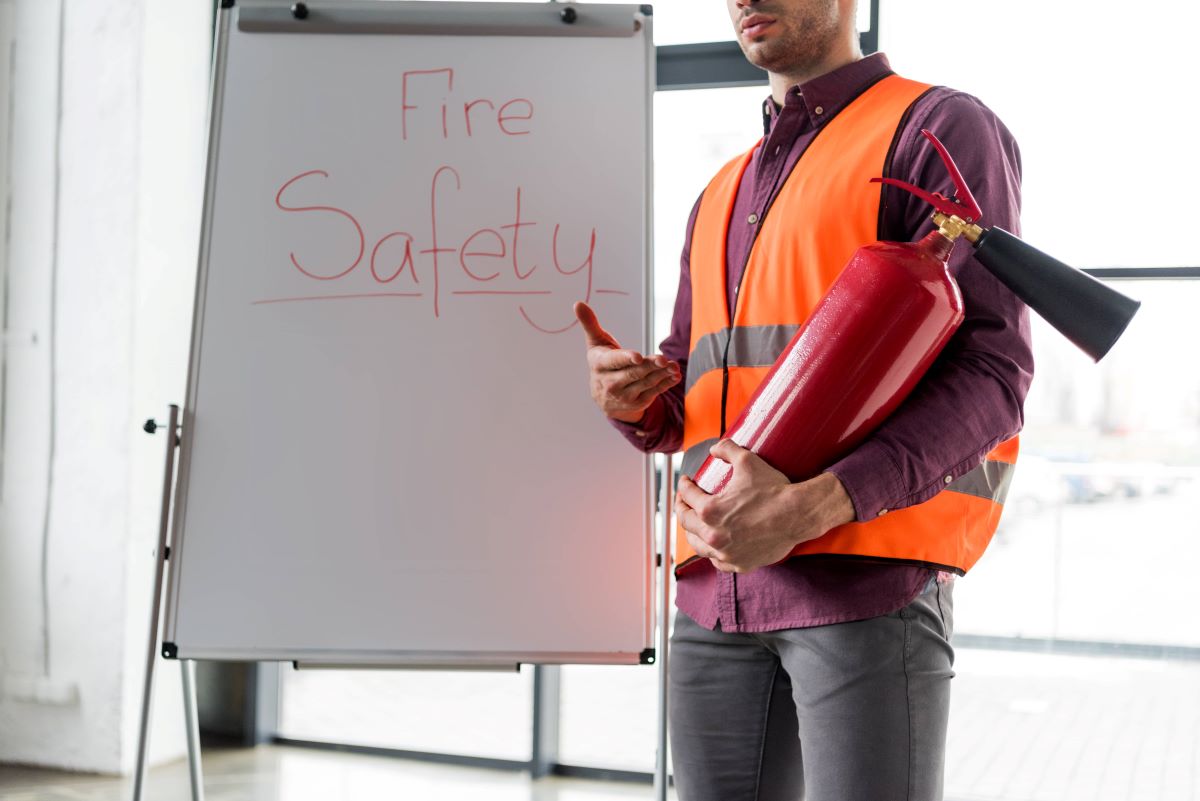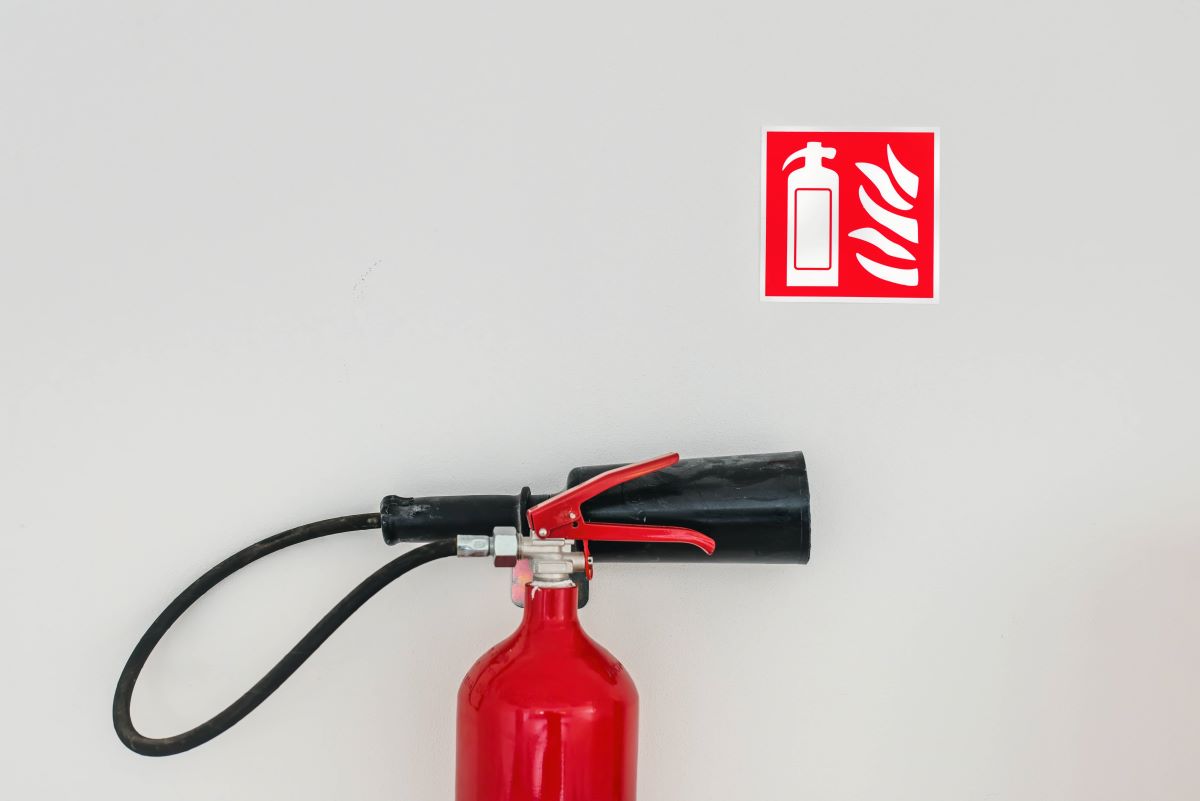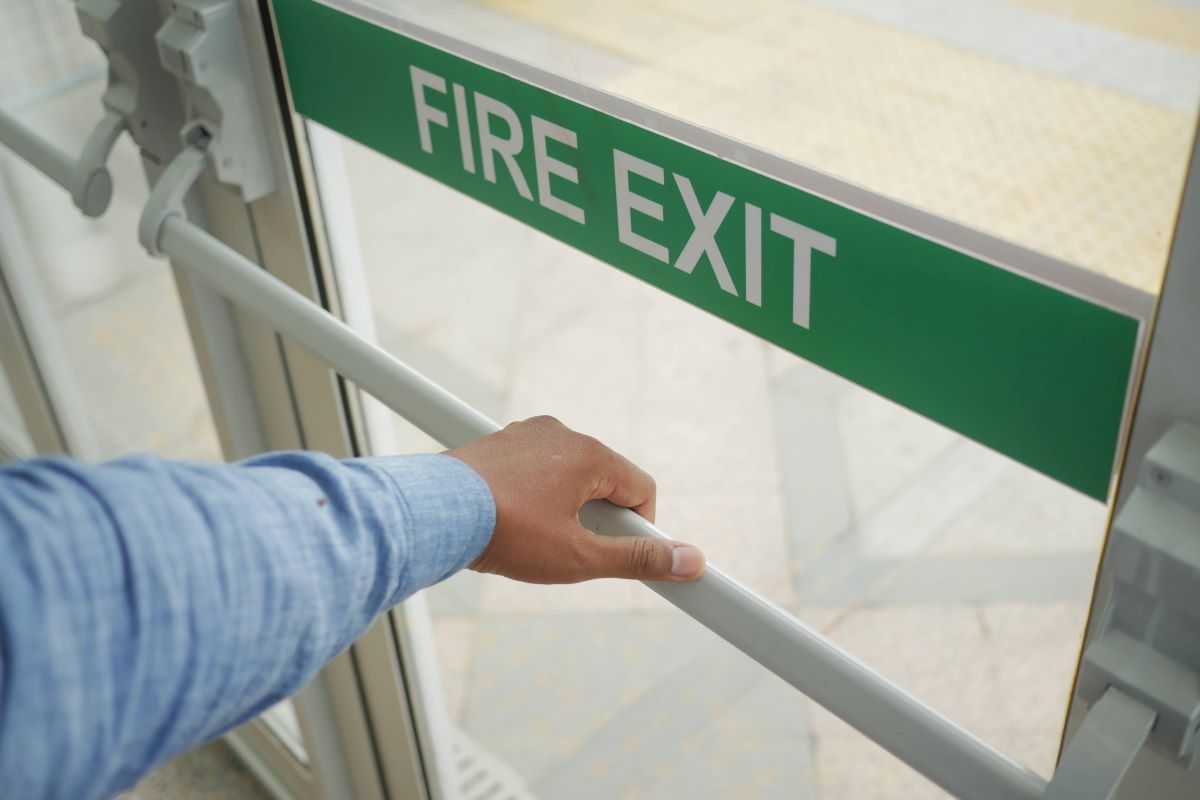Fire safety is a core element of workplace security that ensures the health of employees and security of assets. A fire can result in catastrophic effects, such as loss of lives, loss of assets, and financial losses. With a strong fire safety policy in place, organizations can minimize the chances of fire accidents to a large degree and provide a safe working environment for all employees.
Understanding Fire Hazards in the Workplace

Various workplaces have varied fire hazards. Office complexes, warehouses, factories, and restaurants each have specific fire hazards. Some of the most prevalent workplace fire hazards are:
- Electrical Malfunctions: Overloaded circuitry, faulty wiring, or malfunctioning equipment.
- Flammable Substances: Papers, chemicals, and other flammable material improperly stored.
- Cooking Appliances: Especially in office kitchens, restaurants, and catering establishments.
- Smoking: Cigarettes that are not completely put out.
- Heating Appliances: Personal heaters, boilers, and all the other appliances which may get over-heated or emit sparks.
Key Fire Safety Precautions
 A proactive fire safety strategy can minimize risks and protect employees. Here are some critical fire safety measures businesses should adopt:
A proactive fire safety strategy can minimize risks and protect employees. Here are some critical fire safety measures businesses should adopt:
Fit Fire Protection Systems
Fire protection systems are the initial line of defense against fires in the workplace. These include:
- Fire alarms and Smoke detectors: Early warning will avert a small fire from turning into a tragedy.
- Fire Extinguishers: Must be easily accessible and routinely maintained.
- Sprinkler Systems: Successful at holding back fires before they go out of control.
- Fire Suppression Systems: Most effective in delicate equipment locations such as server rooms.
Provide Regular Fire Safety Training
The staff must be well-trained on fire safety practice. The training must include:
- The operation of fire extinguishers.
- How to ensure the clear passage of exit routes.
- Evacuation in case of fire.
- Detection of fire risk and reporting immediately
Establish and Exercise an Emergency Evacuation Procedure
It is crucial to possess a clearly written and easy evacuation plan. The employers must:
- Mark out emergency escape routes and display them clearly.
- Assign fire wardens to take charge of staff in the event of an evacuation.
- Conduct regular fire evacuation drills to ensure that all are familiar with what to do.
Keep Fire Safety Equipment in Good Working Order
Fire safety equipment must be properly maintained so that they function whenever required. Organizations must:
- Arrange regular checks of fire extinguishers, alarms, and sprinkler systems.
- Repair or replace malfunctioning or aging fire safety equipment.
- Keep fire safety inspection records and compliance with the law.
Adopt Fire Prevention Policies
Prevention is said to be better than the cure. Workers need to have policies that eliminate fire risks incorporated into them, such as:
- Prohibition of smoking in unauthorized areas.
- Safe storage of flammable materials.
- Adherence to electrical devices safety use regulations.
- Notification of potential causes of fire among staff in advance.
The Role of Employees in Fire Safety
 Employees have a significant role in ensuring fire safety. They need to:
Employees have a significant role in ensuring fire safety. They need to:
- Maintain vigilance regarding fire risk in their surroundings.
- Adhere to safety procedures and use machines sensibly.
- Attend fire training and drills.
- Notify management of defective electrical installations or other possible causes of fire.
Compliance with Fire Safety Regulations
Companies are required to comply with local fire safety regulations to prevent penalties and provide a safe working environment. Fire safety laws frequently requires:
- Installation of fire detection and suppression systems.
- Routine fire safety inspections and audits.
- Fire safety training for staff.
- Maintenance of clear emergency exits and escape routes.
Conclusion
It is not just a matter of legal compliance, workplace fire safety is an obligation to be taken up by every employer. By employing adequate fire defense mechanisms, systematic training, and strict fire-control policies, corporations can create a secure and secure work environment. Employees also need to do their part in remaining vigilant and obeying safety rules. A well-trained workplace is the key to preventing fire disasters and safeguarding the lives of everyone on the property.





